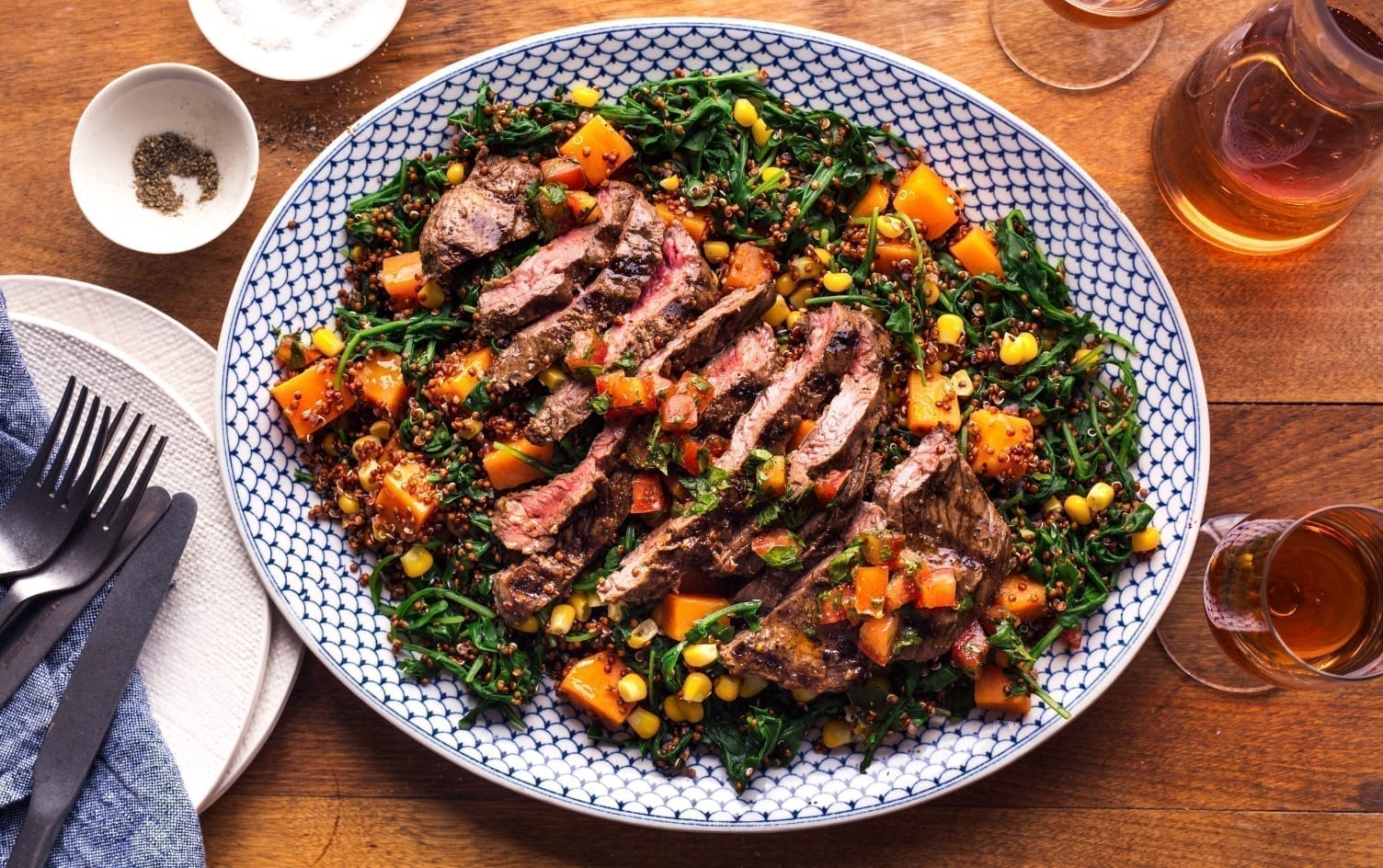We all know moving the number on the scale requires seriously watching our bread, pasta and pastry intake. A diet too high in carbohydrates — even complex carbs like whole-wheat bread, sweet potatoes and beans — could make it harder to lose weight, according to a recent study.
WEIGHING LOW-CARB AGAINST HIGHER CARB DIETS
New research published in BMJ found overweight and obese participants who followed low-carb diets (less than 20% of calories) consumed fewer calories, lost more weight and maintained their weight loss better than those who followed other, higher carb diets.
“Conventional treatment of obesity considers all calories alike. To lose weight, just eat less and move more,” explains Dr. David Ludwig, co-director of the New Balance Foundation Obesity Prevention Center at Boston Children’s Hospital and a professor at Harvard Medical School. “The problem is, this advice rarely works over the long term because the body fights back against calorie deprivation. On a typical low-calorie diet, hunger predictably increases and metabolism slows.”
Ludwig wanted to test whether some diets made it easier to lose weight and maintain weight loss. He assigned 164 overweight participants to one of three diets with 20%, 40% or 60% carbohydrates. Those on the lowest carbohydrate diet burned 250 more calories per day than those on the higher carbohydrate diets while eating the same number of calories.
“These findings show that all calories are not alike to the body and that restricting carbohydrates may be a better strategy than restricting calories over the long term,” Ludwig says.
NOT ALL CARBS ARE CREATED EQUALLY
Carbohydrates break down into sugar. Your body needs those sugars as fuel for energy, but consume too many carbs without expending the energy to burn them off, and your blood glucose levels will be chronically elevated, increasing the risk of diabetes and insulin resistance, according to Jessica Cording, MS, a dietitian, health coach and founder of Jessica Cording Nutrition.
Simple carbohydrates such as white bread, pasta, pastries and crackers are especially problematic because they break down quickly, causing sharp spikes in blood sugar and subsequent crashes that leave you feeling weak and cranky. In contrast, complex carbs such as whole-grain bread, sweet potatoes and beans break down more slowly, providing a more sustained energy release.
“It’s very easy to overdo it on carbohydrate portions, especially simple carbs, because they don’t fill us up in quite the same way,” Cording says. “It’s better to pair a complex carbohydrate with protein and fat — like a peanut butter sandwich on whole-grain bread — to help slow the digestive process so you can avoid the sharp sugar spike and crash.”
Ludwig also advocates swapping refined grains and starchy vegetables for slow-digesting carbohydrates like fruits, nuts, legumes and minimally processed grains such as steel cut oats and quinoa.
THE BOTTOM LINE
Changing your diet to include no more than 20% of calories from carbohydrates requires some willpower. (The general population, Ludwig estimates, gets upwards of half of their daily calories from carbs). Unlike the ketogenic diet, which limits carbs to a mere 10% of daily calories, a low-carb diet still provides the flexibility to have some whole fruits, legumes, limited amounts of grain products and even a touch of sugar, according to Ludwig.
If calculating the percentage of calories from carbohydrates feels too overwhelming, Cording offers this advice: Fill 1/2 your plate with non-starchy vegetables, 1/4 of the plate with protein and 1/4 of the plate with complex carbohydrates — and don’t be afraid to make some exceptions.
“The biggest mistake people make when it comes to carbs is trying to avoid them altogether,” she says. “When you feel deprived, your willpower breaks down and you end up bingeing on carbs and feeling awful. Everything in moderation.”
Build healthy habits with the Low Carb Meal Plan. Sign up to receive daily tips and registered dietitian-approved recipes tailored to your personal calorie and carb goals. Go to “Plans” in the MyFitnessPal app to try our 28-day Low Carb Meal Plan.




